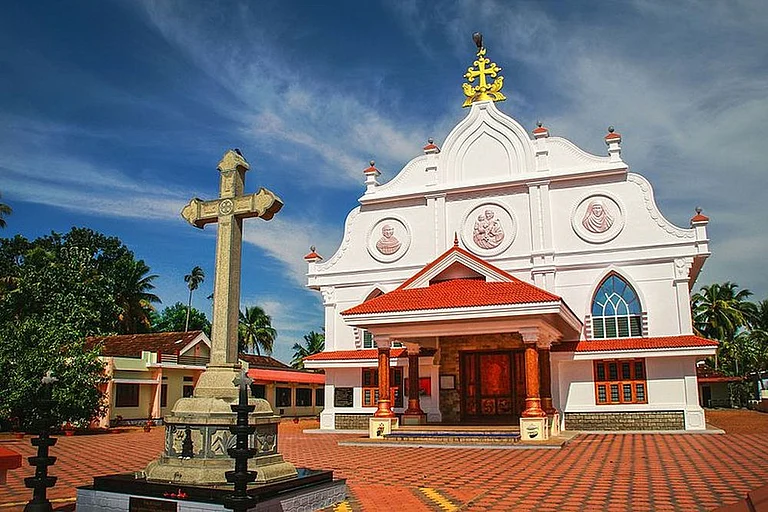
Over 170 public figures issued a statement rejecting the 2025 Bihar election results.
The signatories allege mass voter deletions and manipulation under the SIR process.
They have urged the Opposition to reject the results and called for a non-partisan Election Commission.
On November 14th, the counting day of the Bihar Assembly Elections 2025, people across the state, and across India, stayed glued to television tickers and district-wise updates, waiting for the first major verdict of a high-stakes election year.
Numbers were followed by the kind of tension usually seen during cricket finals. Every turn, a seat flipping, an unexpected lead, a sudden pause in counting- brought excitement and confusion. By afternoon, the mood shifted from anticipation to disbelief among a section of political leaders, who began alleging irregularities and vote theft.
Five days later, a public declaration has rejected the Bihar Assembly outcome entirely.
On 19th November, over 170 individuals — retired judges, IAS officers, political economists, journalists, activists, academics, and members of grassroots organisations, issued a joint statement rejecting the Bihar election 2025 results. They accused the Election Commission of India of conducting a “fraudulent” electoral exercise under the Special Intensive Revision (SIR), describing it as a manipulated system that disenfranchised voters on a massive scale.
The statement opens with a clear demand: “We the People reject the fraudulent Bihar elections result and we demand the Opposition to do the same.” According to those who signed it, Bihar’s election, the first to take place under the SIR framework, signals “the onset of even darker times” for India’s democracy.
They argue that the SIR, which the ECI claims is based on a 2003 process, “bears no resemblance” to the original. Instead, it introduces a mandatory enumeration form requiring every voter to reapply for their place on the rolls.
The statement says this resulted in a “sanitised voter list,” excluding voters in the “tens of lakhs.” It alleges that voter deletions and additions were carried out with “focused intent,” serving the electoral interests of those in power.
“A manipulated democratic exercise”
The statement uses direct, sharp language to describe the current election process. It argues that the framework “serves the undying lust of the authoritarian government to hold on to power at all costs under the sham of a manipulated democratic electoral process.” It also describes viewers, commentators and analysts watching the “manipulated machine” work its “dark magic” while ignoring basic principles of transparency and fairness.
The signatories call this moment a new phase in the struggle for India’s democracy and Constitution. They say the ECI, by using the SIR in its current form, has “breached the trust of the electorate” and now acts “more of an assaulter than a protector of the electoral process.” Under the Commission’s current leadership, they say, the institution has abandoned the values it is meant to uphold.
Criticism of the Opposition
The individuals and organisations listed in the statement have also questioned the role of Opposition parties. It criticises them for participating in the polls instead of boycotting a process they themselves flagged as problematic. Even after gaining a strong public response through the “Voter Adhikar Yatra,” the Opposition’s decision to contest the elections is described as giving legitimacy to “a fraudulently elected government.”
They argue that Opposition parties have shown a weak willingness to work with grassroots civil society, even though these networks have taken ‘impactful initiative and decisive action’ over the past decade.
The statement urges them to “learn from Bihar” and push for “studied, focused collective action” to defend the country’s democratic climate.
With 12 more states lined up for the SIR process, the signatories warn that Bihar is only the beginning and say they will not remain silent as the ECI “dismantles the very democracy it is obligated to tend and defend.” Their call is not just to reject this version of the Commission, but to push for the return of a “constitutionally aligned and committed, non-partisan” institution.
Those who issued the statement include a wide range of public figures:
Retired Supreme Court judge Dr. B. Sudershan Reddy; retired IAS and IA&AS officers Devasahayam M G, Meena Gupta, Gurjeet Singh Cheema and Nagalsamy; political economist Dr. Parakala Prabhakar; former High Court judge Dr. Justice Shankar K G; activists such as Tushar Gandhi, Shabnam Hashmi, Yogendra Yadav and Firoz Mithiborwala; actor Prakash Raj; former MLA Dr. Sunilam; and several journalists, academics and organisers from Bihar, Karnataka, Kerala, Telangana, Assam, Uttarkhand, Maharashtra and Andhra Pradesh.
The list of over 170 names forms a broad national coalition, including physicists, architects, shopkeepers, teachers, social workers, farmers’ leaders, church groups, student activists and local collectives. They say they stand “shoulder-to-shoulder as India’s electorate to fight for no rightful voter left behind.”
A political crisis beyond Bihar
What began as a high-voltage counting day in Bihar has now grown into a larger debate over the credibility of India’s electoral institutions. Rejecting the results does not alter who forms the government, but it reflects rising distrust among sections of voters and public voices.
The statement ends with a pledge to continue fighting to “undo the wrongs” of the current Election Commission and to restore constitutional integrity to the electoral process.


























